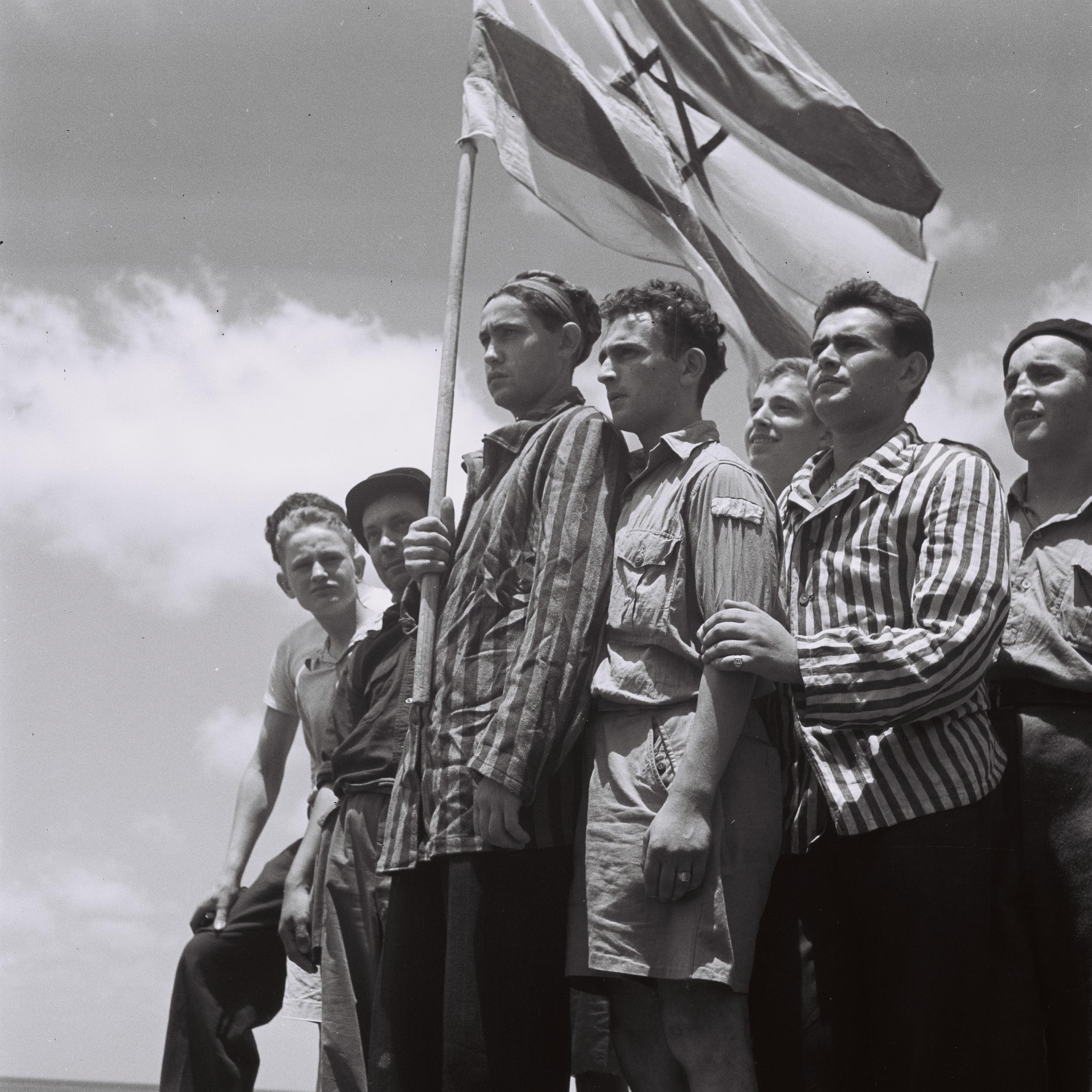First of all the text, adopted by the Knesset on July 19th, 2018:
1. The State of Israel
a) Israel is the historic homeland of the Jewish people in which the State of Israel was established.
b) The state of Israel is the nation-state of the Jewish people, in which it fulfills its natural, religious, and historic right to self-determination.
c) The fulfillment of the right of national self-determination in the State of Israel is unique to the Jewish people.
2. National symbols of the State of Israel
a) The name of the state is Israel.
b) The flag of the state is white, two blue stripes near the edges, and a blue Star of David in the center.
c) The symbol of the state is the Menorah with seven branches, olive leaves on each side, and the word Israel at the bottom.
d) The national anthem of the state is "Hatikvah"
e) Further details concerning the issue of state symbols will be determined by law.
3. The unified and complete city of Jerusalem is the capital of Israel.
4. The Language of the State of Israel
a) Hebrew is the language of the state.
b) The Arabic language has a special status in the state; the regulation of the Arab language in state institutions or when facing them will be regulated by law.
c) This clause does not change the status given to the Arabic language before the basic law was created.
5. The state will be open to Jewish immigration and to the gathering of the exiled.
6. The Diaspora
a) The state will labor to ensure the safety of sons of the Jewish people and its citizens who are in trouble and captivity due to their Jewishness or their citizenship.
b) The state will act to preserve the cultural, historical and religious legacy of the Jewish people among the Jewish diaspora.
7. The state views Jewish settlement as a national value and will labor to encourage and promote its establishment and development.
8. The Hebrew calendar is the official calendar of the state and alongside it the secular calendar will serve as an official calendar. The usage of the Hebrew calendar and of the secular calendar will be determined by law.
9. National Holidays
a) Independence Day is the official holiday of the state.
b) The Memorial Day for those who fell in the wars of Israel and the Memorial Day for the Holocaust and heroism are official memorial days of the state.
10. Saturday and the Jewish Holidays are the official days of rest in the state. Those who are not Jewish have the right to honor their days of rest and their holidays. Details concerning these matters will be determined by law.
11. This Basic Law may not be altered except by a Basic Law that gained the approval of the majority of the Knesset members.
_________________________________________________________________________________
Now some observations.
The League of Arab States was formed in Cairo on 22 March 1945 and has 22 members, although Syria's participation has been suspended since November 2011, as a consequence of the government repression during the current Syrian civil war. The Charter of the Arab League endorsed the principle of an Arab homeland.
The Organization of Islamic Cooperation, founded in 1969, has today 57 member states and its aim is to "safeguard and protect the interests of the Muslim world”.
Among all this, one could have naively supposed that a sole Jewish state, 24 times smaller than Spain, could be accepted. It seems that this was too much to ask.
But wait, may be the comparison with the Arab and Muslim world is not really that much desirable. May be it should be done with Europe. Well, Britain’s flag has a cross and its monarch is the supreme governor of the Church of England. Also Greece has a flag with a cross and in its second article the constitution singles out the Eastern Orthodox Church as the country's "prevailing religion." In Denmark and Norway we can also find crosses in the flags, and their royal families must be members of their respectively churches. We can also can find crosses in the flags of Finland, Sweden, and Switzerland. But then again, a national state for the Jewish people, seems a step too far for much of the “enlightened” public.
Buchenwald survivors arrive in Haifa to be arrested by the British
In relation to the statement that Israel will be open to Jewish immigration, it must be said that the Law of Return, which was passed on 5 July 1950 and allowed for millions of Jews to come back to their ancestral land, is not a discriminatory one but it came as an answer to discrimination, racism and persecution. The current frightening situation of the French Jewish community shows the clear need of special measures for helping Diaspora Jews to come to Israel. Thousands have done it in each of the last years, and a comprehensive study conducted by the French government, informs that 60,000 to 100,000 French Jews want to come to Israel (
https://www.ynetnews.com/articles/0,7340,L-5075151,00.html). And the French case may be only the top of the iceberg or the rising wave of anti-Semitism that shudders the Western world. There are some 18 other countries with similar laws as the Israeli Law of Return, but in general with less justification. But of course, usually only Israel is under the magnifying glass.
For sure much could have been added to the Law and may be some items would have been better not to have been included, but the harsh and raucous reactions to the Law seem to confirm its need.




